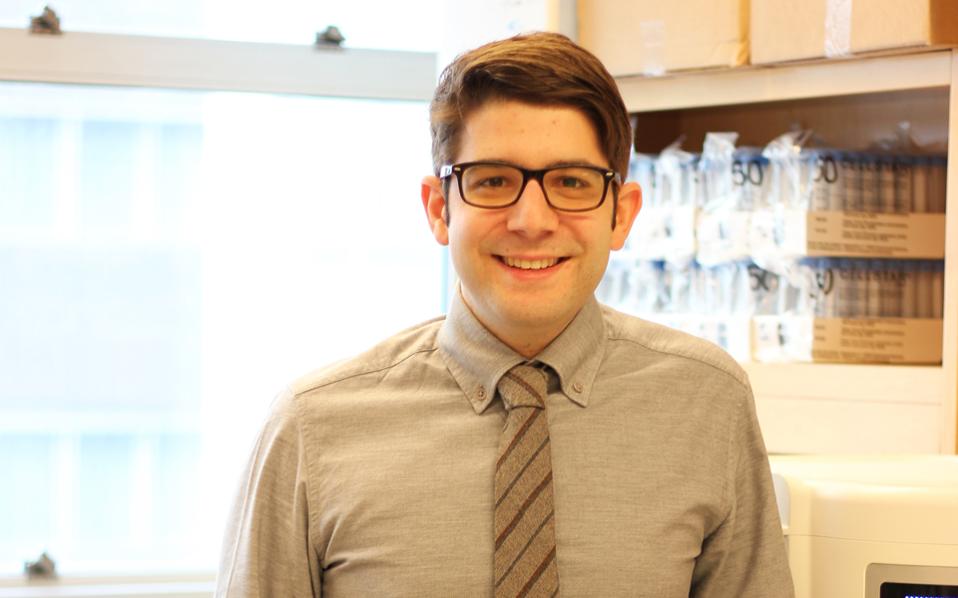He’s only 33 years old, but has an office and a laboratory at New York University (NYU) and is at the forefront of research for the discovery of treatments for lung cancer — the most deadly form of the disease.
Thales Papagiannakopoulos, Assistant Professor in the Department of Pathology at NYU, has employed a revolutionary new technique which tries to understand how specific commonly occurring cancer mutations work.
The ultimate objective is the development of genetic cancer therapies, something which, for now, is extremely difficult because of the complexity involved. But Papagiannakopoulos’ research might well be a right step in the right direction.
On December 22, 2015, the Academy of Athens awarded him a special prize for his innovative research, which was accepted for publication in the leading scientific journal, Nature. Science magazine also described the CRISPR method used by Papagiannakopoulos’ scientific group as a scientific revolution.
Cancer research is first tested theoretically on computer models, then in human tissue cultures and then in animals, such as the Drosophila fly and mice.
“Until recently we had to create mutations through stem cells produced by mice. This could take up to three years. Now we can intervene directly in the DNA of adult organisms, which is of particular interest to us since cancer usually occurs in mature tissue,” he explains.
The technique used by the group, in which Papagiannakopoulos participated as a postdoctoral MIT researcher, managed to produce four mutations in four months, although, as he says, there is no barrier to creating many more, which could greatly accelerate cancer research.
The CRISPR method was discovered in the late ’80s in Osaka, Japan, when researchers observed that some bacteria can alter their DNA to protect themselves against virus attacks.
Years later in 2014, scientists in the US found that they could use this mechanism to splice new DNA, much like cutting text on a computer screen. They then inserted a protein which was prompted by the cell’s RNA to break down the DNA sequence of the cell, as desired by the researchers.
“Using viruses, we managed to transfer cancerous mutations to specific cells in the lung and can focus our study on these. It’s like we found a genetic switch that allows you to create combinations of genetic mutations that occur in humans.” says Papagiannakopoulos.
The big problem that researchers are trying to overcome is the complexity of mutations.
In 200 lung cancer patients, Papagiannakopoulos identified two oncogenes that appear to occur more frequently (in 70% of cases while there are thousands of other mutations whose function is currently unknown) and is trying to interrupt their operation to inhibit disease progression.
The belief in the medical community is that, in the future, gene therapies will be created which may turn some forms of cancer into chronic conditions, though generating a unique DNA treatment per patient is not easy.
If they manage to find genetic pathways that involve large patient groups, they might move a step closer to personalized treatments.
The revolutionary CRISPR method employed by Papagiannakopoulos also has other ethically questionable uses.
“The method can be used for practically anything. We know that some scientists in China have attempted to use it for the genetic engineering of cells.” he says. “Eugenics may be closer than we think,” he concludes.










